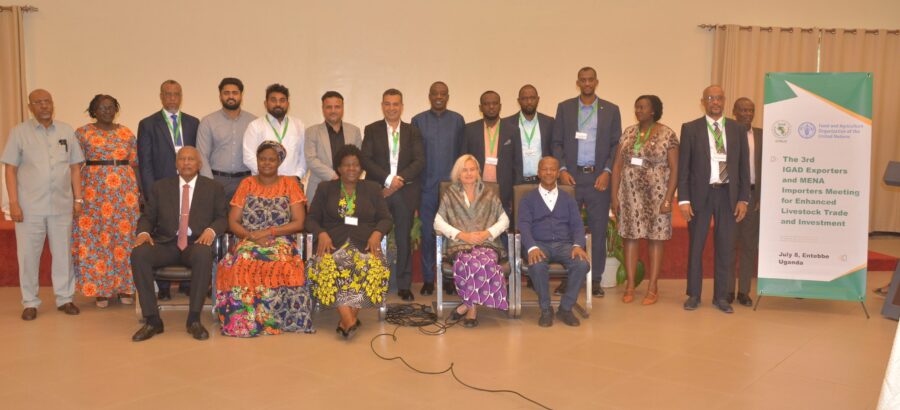The IGAD Centre for Pastoral Areas and Livestock Development (ICPALD) hosted two meetings for IGAD exporting and (Middle East and North Africa) MENA importing countries on July 8-9, 2024, for the private sector and regulatory bodies respectively, at the Best Western Premier Garden Hotel Entebbe.
With financial support from FAO/SFE, the meetings aimed to strengthen collaboration for enhanced investment in livestock and meat trade. The 3rd Private Sectors meeting on 8th July reviewed and evaluated the accomplishments made so far, addressed the challenges faced by exporters and importers and charted ways to spur trade between the two regions.
Similarly, the 7th inter-regional joint regulatory bodies meeting on 9th July focused on enhancing inter-regional Chief Veterinary Officers (CVOs)/quarantine networks for trust and transparency between the importing and exporting countries, and also on improvement of the bilateral MoU of exporting and importing countries.
Bringing together regulatory body officials, traders and CVOs from Djibouti, Ethiopia, Kenya, Somalia Uganda, Saudi Arabia, Oman, Egypt and UAE, the expectation was that comprehensive deliberations on issues regarding livestock value chain trade compliance, harmonizing laboratory test methods, current joint investments and planning for future investment forums would take place.
The IGAD region exports live animals and meat to huge import markets in MENA countries, annually meeting about 50% of live animals and 10% of meat market demands. This means that the region has a huge potential to export to MENA due to its advantageous close proximity to MENA, having similar animal body configuration & meat taste, and providing relatively cheaper prices, among others.
To improve transparency, trust and enhance trade from the IGAD region to MENA countries, ICPALD in collaboration with FAO organized the first inter-regional IGAD-MENA countries meeting in 2016. Some of the key issues raised at this forum were on animal health challenges, animal trade compliance, trade bans, slaughterhouse approval process, quarantine facilities, updated sanitary requirements, vaccination stipulations, communication flow, amongst others.






